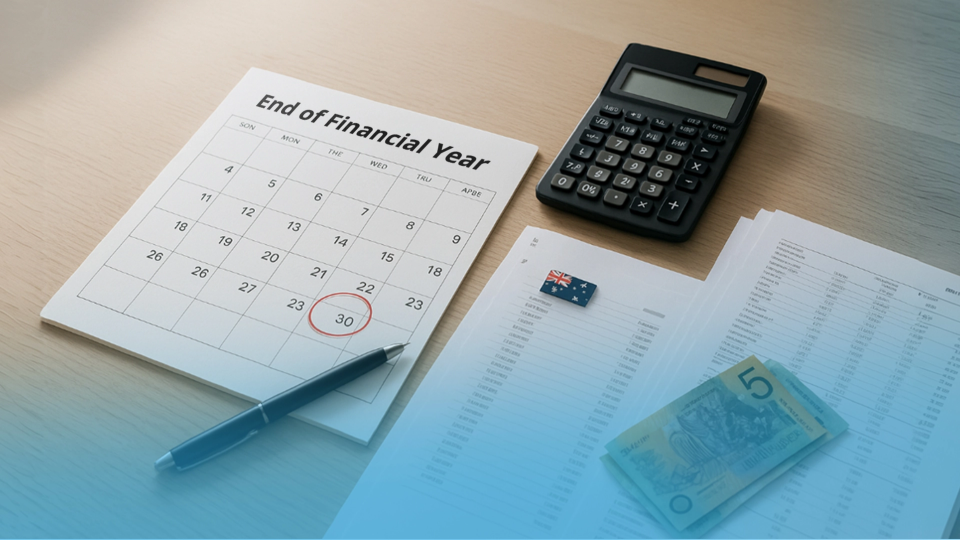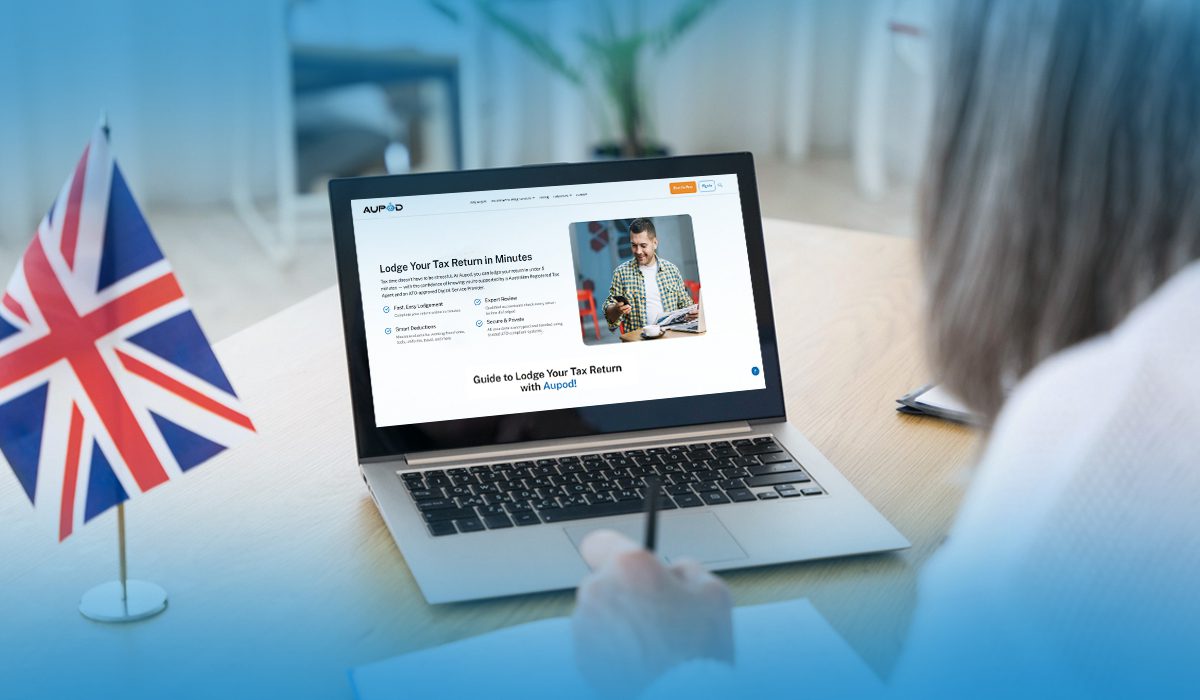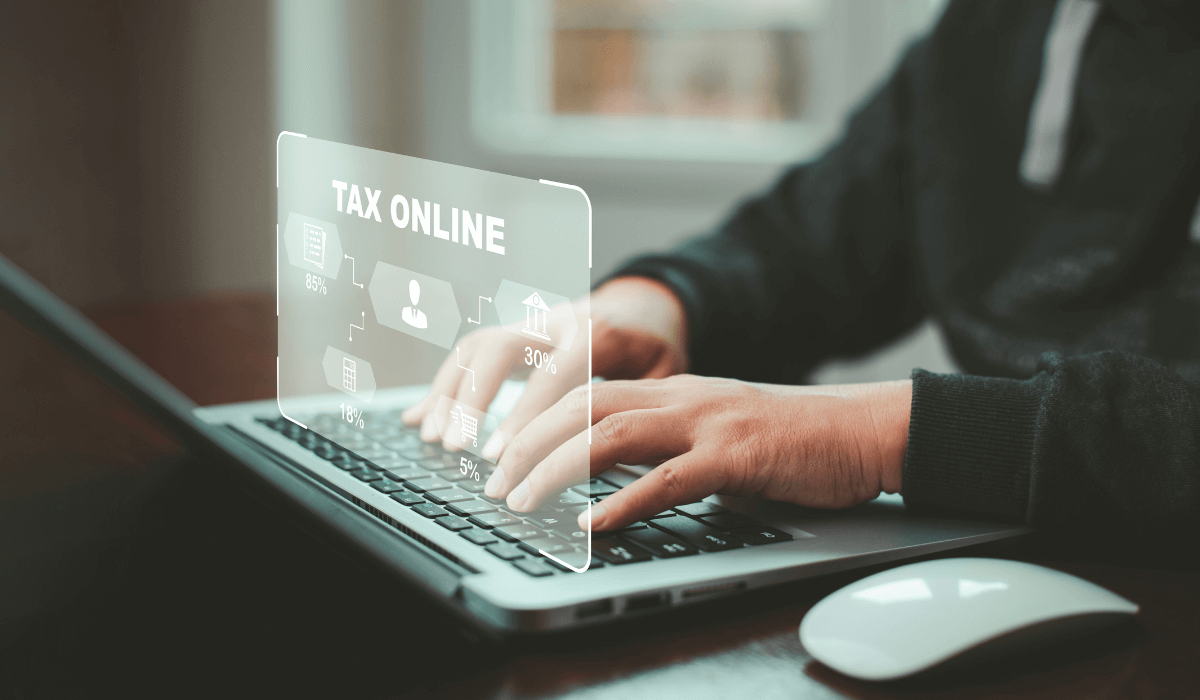When the end of the financial year (EOFY) comes, many businesses in Australia feel stressed. They have to deal with taxes, money, and rules all at once. The numbers show why good planning matters. Every year, more than 2.5 million small businesses send tax returns to the ATO. But about 1 in 3 small businesses miss out on tax deductions they could claim. In 2024, the average refund was $2,548, which shows how much money can come back if tax is done right. Still, 2 out of 3 business owners say tax is confusing, and only 1 in 4 small businesses used the Instant Asset Write-Off in 2025 to save money.
This means planning early is very important. Tax planning is more than filling forms. It helps save money, keep cash flow strong, and get ready for the new year. With help from Aupod, businesses can do their tax the right way, stay safe with the rules, and keep their money healthy.
Why End-of-Year Tax Planning Matters for Australian Businesses
For small business tax planning in Australia, EOFY preparation can mean the difference between scrambling at the last minute and confidently entering the new year. Effective tax planning for Australian businesses provides benefits that extend far beyond compliance:
- Improved cash flow – freeing up funds for reinvestment.
- Reduced liabilities – through available concessions and deductions.
- Smarter decisions – by anticipating tax impacts before June 30.
- Future readiness – positioning your business for sustainable growth.
Key Business Tax Planning Strategies Australia
Here are essential business tax planning strategies in Australia every SME should consider before 30 June:
Review Superannuation Contributions
Super contributions are only deductible when paid and received by the fund. To claim deductions in the current year, ensure June quarter payments are cleared into employee funds before June 30.
Leverage Instant Asset Write-Off
If a small business makes less than $10 million in a year, it can get money back straight away for some things it buys, like tools or equipment. This is called the instant asset write-off. If the business needs to buy something soon, it might be smart to buy it before the end of the year so it can save money on taxes and keep more cash in hand.
Write Off Bad Debts
Unrecoverable debts can be claimed as deductions if written off before EOFY. SMEs should review debtor ledgers and formally record write-offs to minimise business tax in Australia.
Manage Inventory and Obsolete Assets
Businesses can value closing stock at cost, market value, or replacement cost, whichever provides the lowest outcome. Writing down obsolete or damaged stock can further reduce taxable income.
Prepay Eligible Expenses
If a business makes less than $50 million in a year, it can get money back faster for some things it pays early. This can be rent, insurance, or subscriptions. But the rule is that these payments must be for services used within the next 12 months.
Accrued and Consumable Expenses
Businesses getting bills before 30 June can use them as a tax expense, even if the bill is not paid yet. Small things like pens or paper that will be used in the next three months in business operations can be claimed for tax straight away.
Plan Capital Gains Tax (CGT) Timing
Capital Gains Tax (CGT) starts when you sign the contract to sell something, not when you get the money later. If a business keeps an asset for more than 12 months, it may get a 50% discount on the tax. So, choosing the right time to sell can save a lot of money.
EOFY Business Tax Checklist
Here’s a simple EOFY business tax checklist to keep your planning on track:
- Finalise bookkeeping and reconcile accounts.
- Prepare profit & loss statements, debtors, and creditors summaries.
- Review and document bad debt write-offs.
- Conduct a stocktake and value closing stock strategically.
- Pay super contributions by 30 June.
- Prepay eligible expenses for early deductions.
- Confirm staff bonuses and finalise STP (Single Touch Payroll).
- Review trust resolutions and distribution documentation.
- Ensure all business records are digitised and backed up.
Australian Business Tax Deductions to Maximise
It’s very important for a business to know what things it can claim and to keep good records (like bills and receipts). This helps follow the rules and also makes sure the business gets the biggest refund possible. Businesses can claim a wide range of Australian business tax deductions if expenses are directly related to income generation. These may include:
- Business motor vehicle expenses
- Home-based business costs
- Travel for work purposes
- Digital and IT expenses (software, subscriptions)
- Tools, machinery, and equipment
- Professional fees (accounting, legal)
- Superannuation contributions
- Marketing and advertising costs
Australian SMEs Tax Planning Tips
For small and medium enterprises, EOFY tax tips for businesses go beyond deductions:
- Check eligibility for concessions, such as small business income tax offset or energy efficiency incentives.
- A business can be set up in different ways, like a sole trader, a company, or a trust. Check if your setup is still the best for saving tax.
- Stay compliant and make sure PAYG, GST, and BAS obligations are up to date.
- Work with a registered tax agent to not miss valuable deductions and remain compliant with ATO requirements.
End of Financial Year Tax Advice Australia
The Australian Taxation Office (ATO) regularly updates tax laws and concessions. Staying informed is crucial. Practical steps include:
- Subscribing to ATO’s small business newsroom.
- Following updates on superannuation guarantee changes.
- Checking eligibility for small business offsets and industry-specific concessions.
Small businesses should check if they can get special tax discounts or concessions made just for them. If they act early and get advice from a tax professional, they can save money, feel less stressed, and start the new year in a stronger position.
Conclusion!
End-of-year tax planning in Australia is not just about following rules. It is a smart way for a business to save money and grow. By using tax deductions, keeping cash flow healthy, and following an EOFY checklist, businesses can pay less tax and be ready for the next year.
If you don’t know where to begin, it’s a good idea to talk to a registered tax agent. They can give the right advice for your business and help you get the best refund possible. Aupod has some of the leading tax and accounting professionals, who can help you with:
- Maximising Refund
- Claiming Eligible Deduction
- Managing Cashflow
- Maintaining Records
Get in touch with our expert for a free consultation to know where your business stands.



